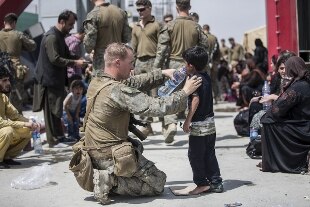Share
August 23, 2021 "About 10 million children across Afghanistan are in need of humanitarian assistance lost to survive and an estimated 1 million children will suffer from severe acute malnutrition this year and could die without treatment."
This is the alarm raised by the executive director of UNICEF Henrietta Fore who reiterated the firm will of the United Nations agency for children to remain in Afghanistan "now and in the days to come".
"This sad reality" of Afghan children is such "regardless of ongoing political developments and changes in government" and "we expect the humanitarian needs of children and women to increase in the coming months due to severe drought, the devastating socio-economic consequences of Covid pandemic and the beginning of winter ".
UNICEF estimates that 4.2 million children do not go to school, including more than 2.2 million girls. Since January, the United Nations has documented over 2,000 serious violations of children's rights. In addition, some 435,000 children and women are internally displaced. "Millions will continue to need essential services" in areas such as health, polio and measles vaccinations, nutrition, protection, shelter, water and sanitation, added Henrietta Fore, noting that UNICEF is strengthening its life-saving programs to children and women. "We hope to extend these operations into areas that previously could not be reached due to insecurity," he said in a statement released today.
The director of Unicef finally urged "the Taliban and other parties to guarantee safe, timely and unrestricted access so that humanitarian agencies can reach children who need help wherever they are". Over the weekend, the World Health Organization (WHO) and Unicef called for the immediate establishment of a humanitarian airlift for the continuous and unhindered delivery of aid to Afghanistan.

